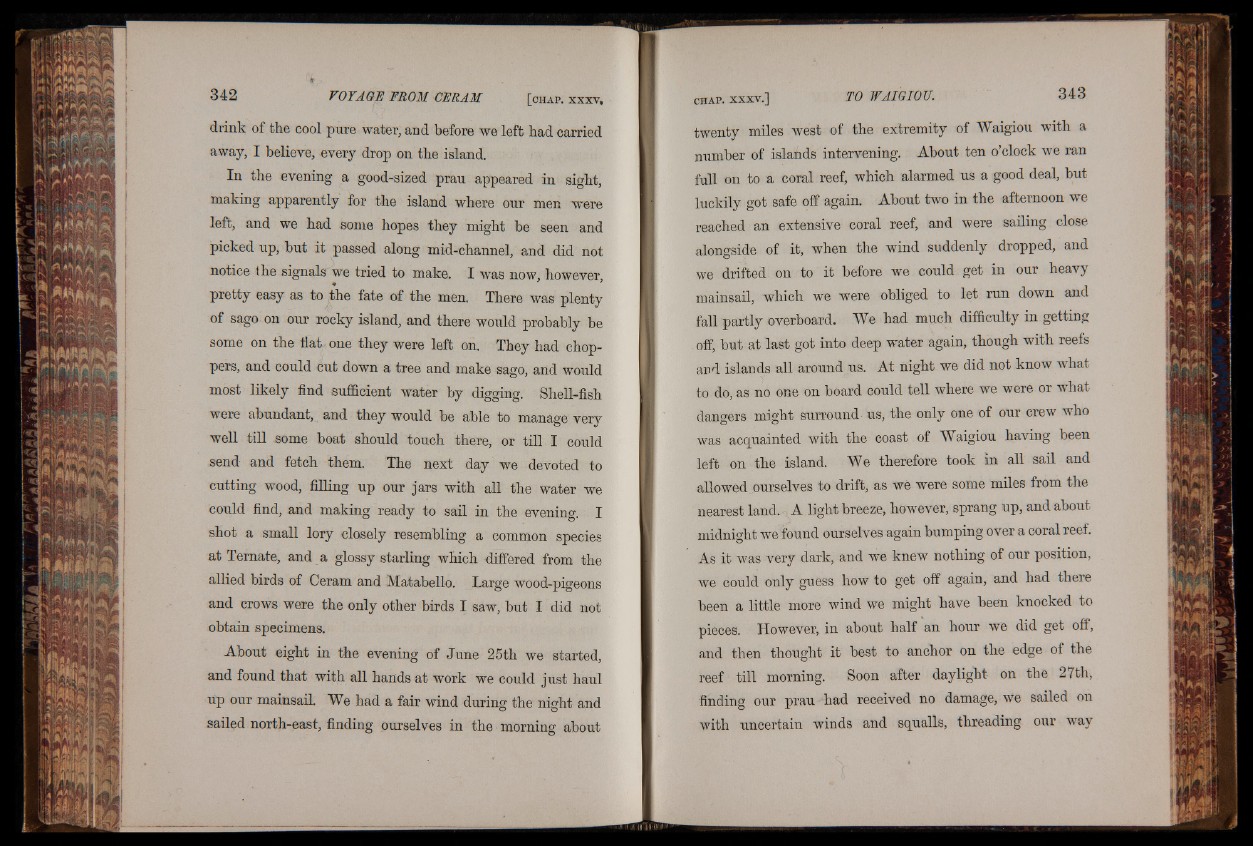
drink of the cool pure water, and before we left had carried
away, I believe, every drop on the island.
In the evening a good-sized prau appeared in sight,
making apparently for the island where our men were
left, and we had some hopes they might he seen and
picked up, but it passed along mid-channel, and did not
notice the signals we tried to make. I was now, however,
pretty easy as to the fate of the men. There was plenty
of sago on our rocky island, and there would probably be
some on the flat one they were left on. They had choppers,
and could cut down a tree and make sago, and would
most likely find sufficient water by digging. Shell-fish
were abundant, and they would be able to manage very
well till some boat should touch there, or till I could
send and fetch them. The next day we devoted to
cutting wood, filling up our jars with all the water we
could find, and making ready to sail in the evening. I
shot a small lory closely resembling a common species
at Temate, and a glossy starling which differed from the
allied birds of Ceram and Matabello. Large wood-pigeons
and crows were the only other birds I saw, but I did not
obtain specimens.
About eight in the evening of June 25th we started,
and found that with all hands at work we could just haul
Up our mainsail. We had a fair wind duringo the nioght and
sailed north-east, finding ourselves in the morning about
twenty miles west of the extremity of Waigiou with a
number of islands intervening. About ten o’clock we ran
full on to a coral reef, which alarmed us a good deal, but
luckily got safe off again. About two in the afternoon we
reached an extensive coral reef, and were sailing close
alongside of it, when the wind suddenly dropped, and
we drifted on to it before we could get in our heavy
mainsail, which we were obliged to let run down and
fall partly overboard. We had much difficulty in getting
off, but at last got into deep water again, though with reefs
and islands all around us. At night we did not know what
to do, as no one on board could tell where we were or what
dangers might surround us, the only one of our crew who
was acquainted with the coast of Waigiou having been
left on the island. We therefore took in all sail and
allowed ourselves to drift, as we were some miles from the
nearest land. A light breeze, however, sprang up, and about
midnight we found ourselves again bumping over a coral reef.
As it was very dark, and we knew nothing of our position,
we could only guess how to get off again, and had there
been a little more wind we might have been knocked to
pieces. However, in about half an hour we did get off,
and then thought it best to anchor on the edge of the
reef till morning. Soon after daylight on the 27th,
finding our prau had received no damage, we sailed on
with uncertain winds and squalls, threading our way